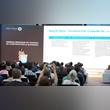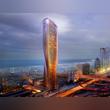
- ID Number 24151
- Aug 08, 2023
- 202
New DIFC Courts Enforcement Department strengthens UAEs status as global dispute resolution hub
The UAEs position as a global dispute resolution hub was strengthened today with the launch of the DIFC Courts Enforcement Department. Operating under the leadership of HE Judge Omar Al Muhairi, the newly formed department has been created to ensure the simple and speedy enforcement of orders made by both the DIFC Courts and other jurisdictions.
The DIFC Courts Enforcement Department will have two areas of responsibility. First, it will work to enforce judgements made by the DIFC Courts Court of First Instance and Small Claims Tribunal both locally and internationally. Second, it will enforce the orders of other courts regards to assets held within the DIFC.
Through a series of memoranda with leading international jurisdictions, the DIFC Courts have established one of the worlds strongest enforcement regimes. Their money judgments can be enforced internationally through treaties such as the GCC Convention and Riyadh Convention, conventions with China, India and France, and reciprocal arrangements with many common law courts overseas. The regime was further strengthened in 2013 when the DIFC Courts signed memoranda covering the mutual enforcement of money judgments with the Commercial Court of England and Wales and the New South Wales Supreme Court.
Michael Hwang, Chief Justice of the DIFC Courts, said: The creation of this department sends a very clear signal that the DIFC Courts judgments are enforceable internationally and that we will enforce the judgements of other leading jurisdictions. This will give additional certainty to international business while also contributing to a strong and effective justice system, which is a key goal of the UAES 2021 Vision.
Overseeing the department is HE Judge Omar Al Muhairi, who brings over 23 years experience working in both the Dubai Courts and DIFC Courts. Alongside him, the dedicated team is bolstered by two experienced judicial officers, Nassir Al Nasser and Maha Al Mehairi.
On the appointment of HE Judge Omar Al Muhairi, Hwang said: With his breadth of expertise in both the Civil and Common Law systems, Omar was particularly well suited to lead the new department, and he continues to be a pioneer for UAE nationals working in the legal profession.
HE Justice Omar AlMuhairi said: Since the DIFC Courts' jurisdiction was opened to businesses worldwide in October 2011, enforcement has become an increasingly important part of our work. It is an honour to be chosen as the first person to lead this new department, which, together with the appointments of Nassir and Maha, marks another significant milestone for Emiratis working in the Common Law system.
The DIFC Courts new enforcement structure is designed to be fast, flexible and fully paperless. A person seeking to enforce a judgment, decision, or order can choose from four different methods, including charging orders, attachment of assets or earnings, execution against assets and the appointment of a receiver. Once an application is filed, either online or by hand to the enforcement department located in the DIFC Courts Registry, it will be dealt with by an enforcement officer who will normally act according to the request, with an order or directions then issued within one to two working days.
Nassir Al Nasser added: To make the enforcement department as user-friendly as possible, we have also developed an easy use to easy-to-use guide for claimants that can be accessed through our website. The schematic helps to speed up the process by walking a claimant through the key steps involved in making a claim using all four different enforcement methods.
The DIFC Courts Enforcement Flow Chart can be downloaded by visiting: http://www.difccourts.ae/Enforcement-Procedure.aspx

Making History: ASPIRE to Launch Inaugural ‘Abu Dh...
- Apr 23, 2024

ENOC Group partners with Loyyal to enhance ‘YES’ r...
- Apr 23, 2024

Septuagenarian Visitor's Life Saved at Kuwait Hosp...
- Apr 23, 2024












